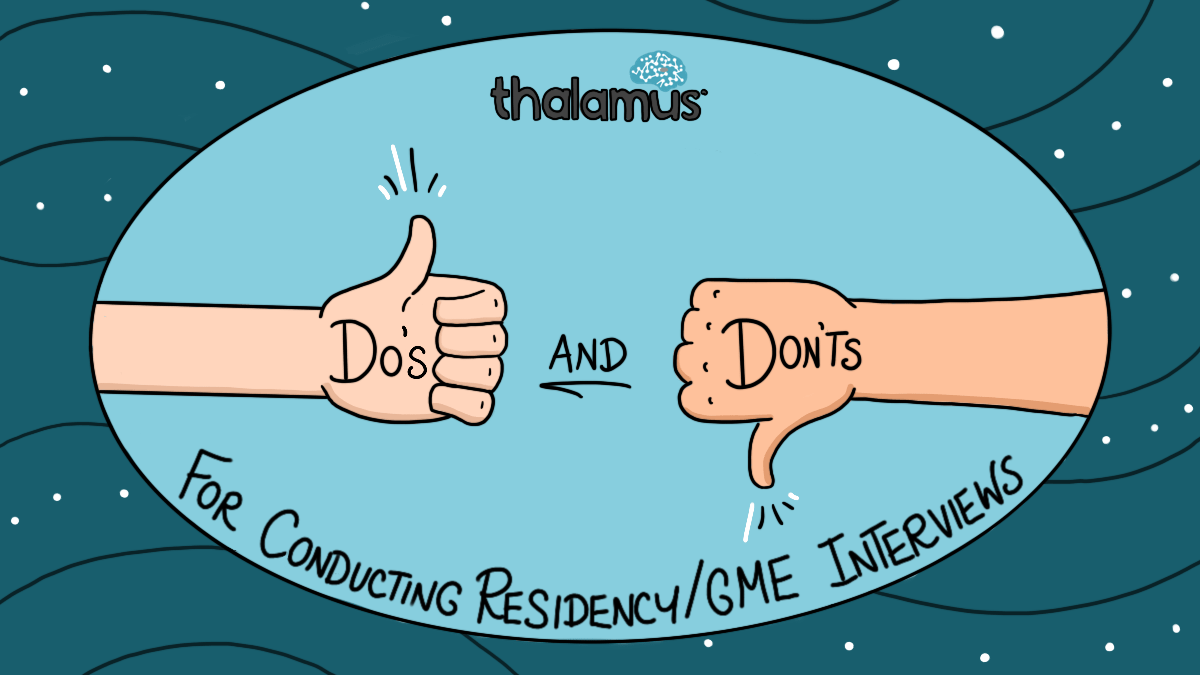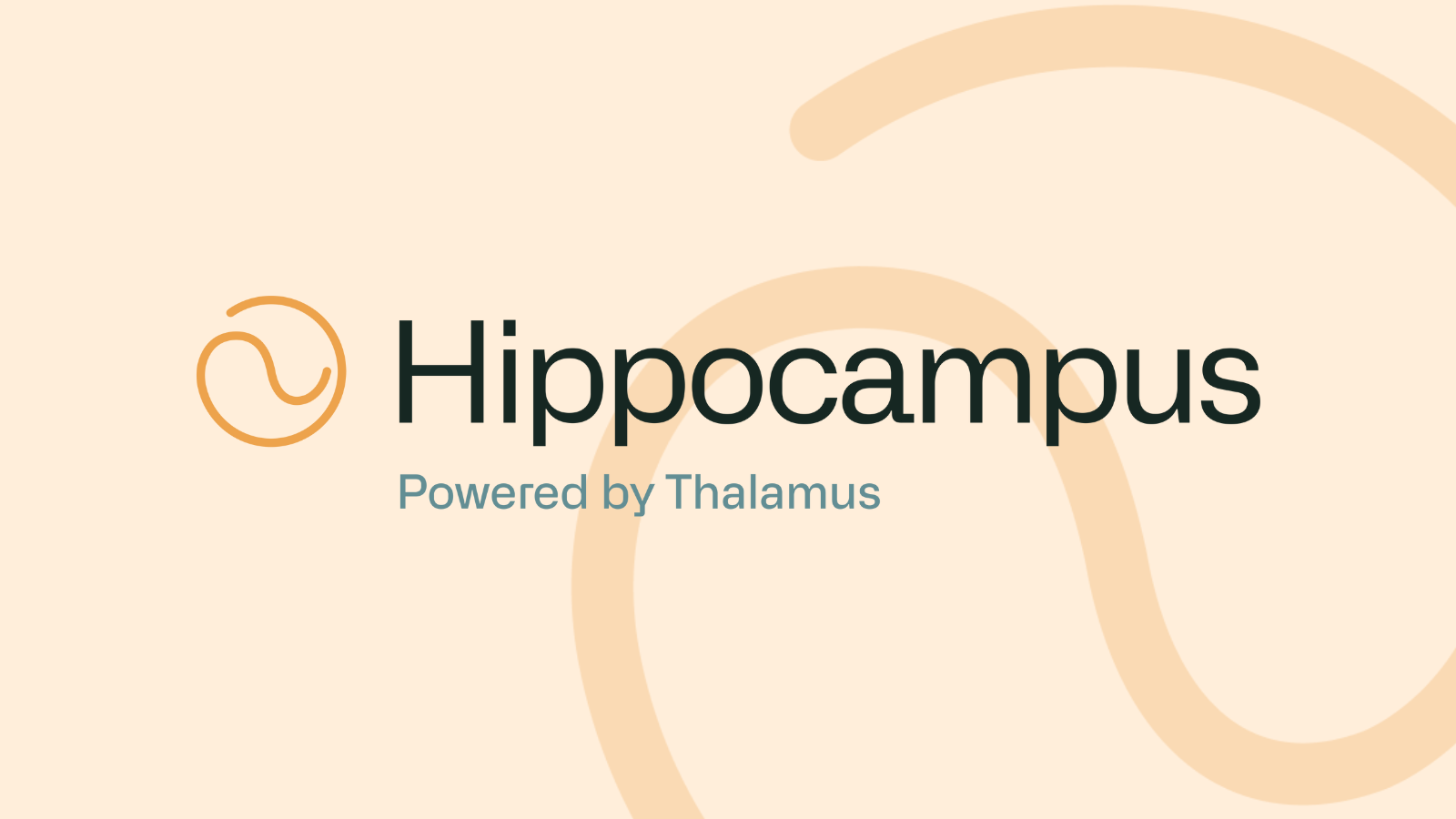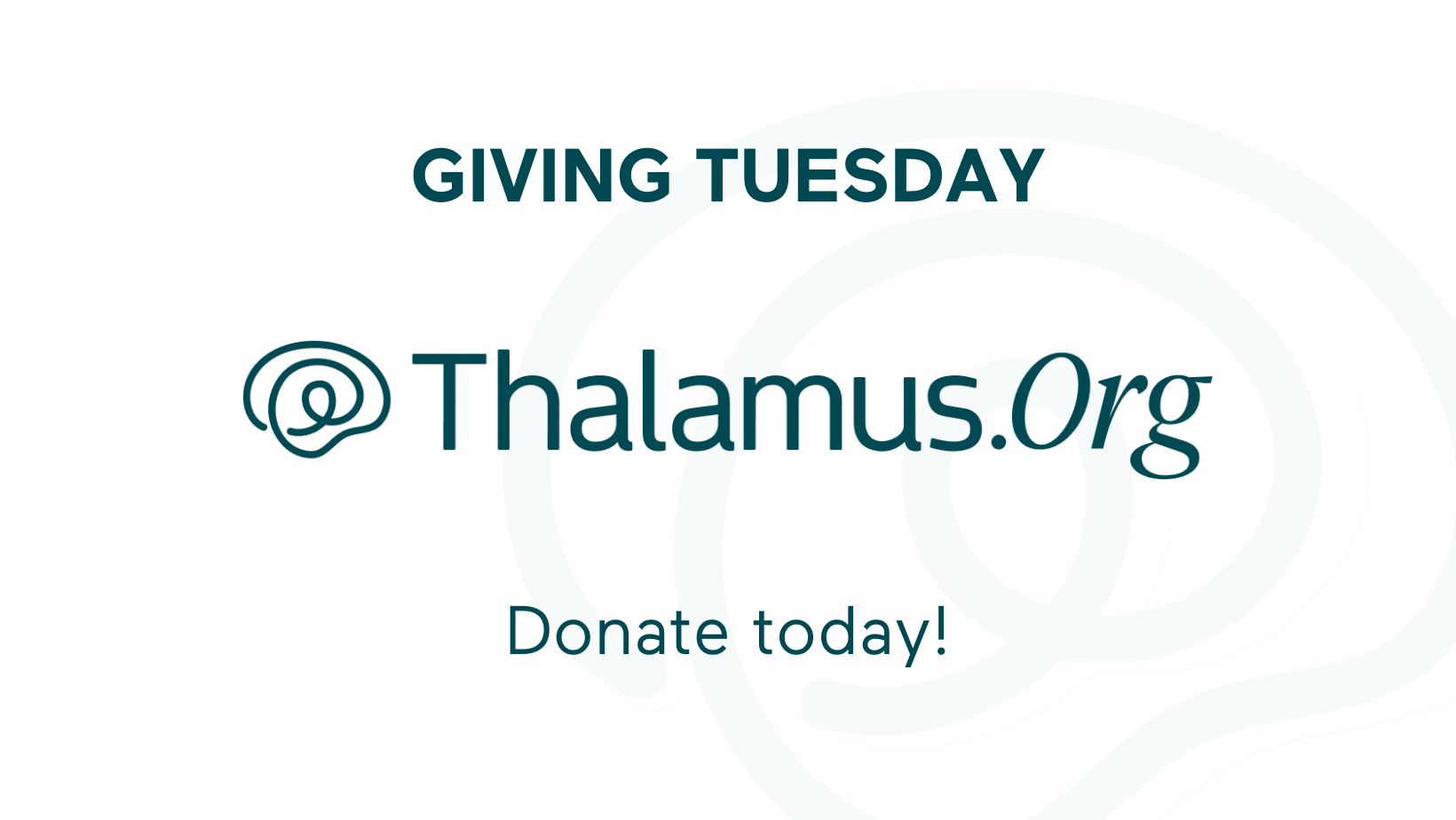Important Dos and Don'ts for Conducting GME Interviews


For residency programs and those running them, nearly all parts of the GME interview management process are high-pressured. This includes thousands of applications needing review by faculty and staff and hundreds of interview slots needing scheduling, all to form a final rank list in the search for those who will ultimately match at your program.
Much time and energy is spent trying to make the experience as unique and enjoyable for applicants as possible. However, no part of it is more important than the GME interview day itself. It is the point where you will meet your candidates face to face to determine both parties’ “overall fit.”
Indeed, the interview day itself can be the determining factor for both applicants and programs. Thus, it is critical for a residency program to “put its best foot forward” and easily communicate to applicants what makes their program different from others. As there may be hundreds of options within any given specialty, candidates have many choices based on geography, educational mission, and several other variables. Put this together with candidates trying to communicate what makes them a good fit for a program, and much information is communicated in a very short period.
Team Thalamus recognizes this, having scheduled hundred of thousands of GME interviews to date (and counting!). We work with programs in over 70 specialties, and tens of thousands of applicants each year as well. And we don’t only manage the scheduling component, every day, we hear feedback from both applicants and programs alike. As such, we are excited to share what we have learned over the last half-decade as “dos” and “don’ts” for conducting GME Interviews.
First, the “dos”
One: Do communicate clearly
This concept should be applied to your entire interview season, starting with your GME interview invitation email and continuing through match day and the start of orientation. Keep email messages, short, informative and concise.
We recommend the same with your interview confirmation email, interview day reminders, directions to campus and interview day agenda. Keep messaging concise and communications limited, recognizing that if domestic candidates are applying to 60+ programs on average (150+ programs if IMGs) their inboxes are likely quite full. Not having to search for different pieces of information in multiple lengthy emails means candidates can focus more on enjoying the GME interview day rather than solving an intricate puzzle to even be in attendance.
The same can be said for the GME interview day itself. Check that your current residents are aware of the main talking points. Ensure that your Program Director—or whoever is giving the introductory talk—recognizes that applicants will likely go through 20-30 GME interview day orientations (and dinners… and hospital tours… etc.).
Make it clear to candidates what they should expect after the interview day ends. Personally, prior applicants on Team Thalamus’ staff have really appreciated programs that stated, “We closely abide by NRMP rules and guidelines. Even if we love you, we won’t send love letters and would appreciate you don’t send us any either. Please rank us highly if you’d like to come here and we will do the same on our end.” Straight, direct and to the point is what candidates tell us they most appreciate about a program.
Two: Do review a candidate’s file fully and holistically
GME interview days allow programs and applicants to dive below the surface of candidate applications and GME/residency program websites. Beyond USMLE scores, MSPEs, and letters of recommendation ensure that all at your program make an effort to get to know what it would be like to work alongside particular candidates. Ask good questions of your candidates and have thorough answers to their questions.
Try to eliminate bias by standardizing GME interview day faculty scoring and evaluation. Thoroughly understand how those scores will play into your ranking committee’s process, to ensure everything flows through to the finalized rank list.
Best practices, such as those outlined in this guide put out by the AAMC can help.
Additionally, try to ask non-standard interview questions (because the common ones are answered over and over again on autopilot).
Three: Do enjoy the process
Recruiting candidates (and the entire GME academic year) can become monotonous at times due to the cyclical and seasonal nature of the process. Try to keep a fresh perspective on it, incorporate something new and innovative into the interview day, and inject some humor into your materials.
Candidates will notice, and distinguishing your programs in such ways may ultimately be a deciding factor for an undecided candidate. There is stress throughout the process, but a relaxed, fun and professional interview day can work wonders. This is a long and winding process and every member of our team can remember something funny, pleasant or enjoyable throughout their interview season. In most cases in our small sample size, our team members ended up matching at that program.

And now, the don’ts!
One: Don’t rush through review of your candidates (and know who is coming to interview when)
Candidates are interviewing at many institutions around the country. They are being asked similar questions each time, and will easily be able to distinguish those that have read their application and those that haven’t.
As candidates, sometimes traveling thousands of miles to attend an interview, there is nothing worse than starting an interview with an interviewer stating, “Well, I haven’t had time to review your application, so tell me what you think I should know…” or “I don’t review applications, so I can get to know you better without it affecting my judgment of you…” These are usually giveaways that the interviewer didn’t have time to review an application (or didn’t take the time to do so).
If your program is using blinded interviews, provide at least some snippets of who the candidate is to the interviewer. Candidates will appreciate a welcoming environment and will likely tell you more about themselves.
One Team Thalamus member had an interesting experience: the residency program had somehow forgotten they were coming on an interview day. Upon showing the program his confirmation letter (and making it to the interview day on time without any instructions), the program frantically scrambled and apologized for the inconvenience. His interviewer even played it off as “I don’t review applications beforehand…” to which this candidate thought “Yes, and you didn’t have my application in your hand until about ten seconds ago since no one knew I was coming…”
Mistakes happen, but ensure that all faculty and staff are on the same page when they do (this candidate did not even rank this program in the end).
Two: Don’t commit a Match violation or ask an uncomfortable interview question
Just as programs expect candidates to be professional on their interview days, please ensure that your staff and faculty conduct themselves in a completely above-board manner. This carries throughout the entirety of your interview season.
Three: Don’t over-analyze or over-score or over-manipulate your rank list
We are firm believers that the greater majority of medical students are poised to be outstanding and professional physicians. They excelled in college and medical school, got through your program’s initial interview screen and made it to your interview day. Probably, any candidate who made it that far will be qualified (eliminating those with apparent “red flags” or other issues).
One program director once said to us “I don’t over-score my candidates, because they are all in the top 1% of everything they’ve ever done—does it really matter if they are in the top 0.8%?”
We agree with this wholeheartedly.
We’ve seen residency programs that have used 5-10+ faculty members to score candidates, then sort candidates into groups, then re-score, then re-sort, then re-score and then finally reorder the rank list so significantly at the final committee meeting that the scores became essentially meaningless. With all this stated, that program still had to go down to applicant number 287 on the rank list to match their final candidate (per their self-report, while asking for assistance to help them streamline this process the following year). That’s a lot of scoring, and faculty and director time that went wasted. Don’t do it.
Taking the above into consideration, there are certainly things to do on GME interview days. There are also practices that should be avoided.
Clear communication combined with holistic review and an enjoyable day are great! Rushed candidate review, match violations and over-analysis can be quite detrimental. And whatever your program decides to do to optimize your GME interview day, Thalamus is always here to help.In fact, Thalamus exists to streamline your GME interview management process. We don’t only assist with interview scheduling, but application review, interview day material preparation, face sheets, scoring, and rank list building. Learn more about how it works and if you’d like us to help us streamline your process (similar to the program matching candidate 287 above), please write to us at sales@thalamusgme.com or request a demo!
Explore our latest insights and updates.













